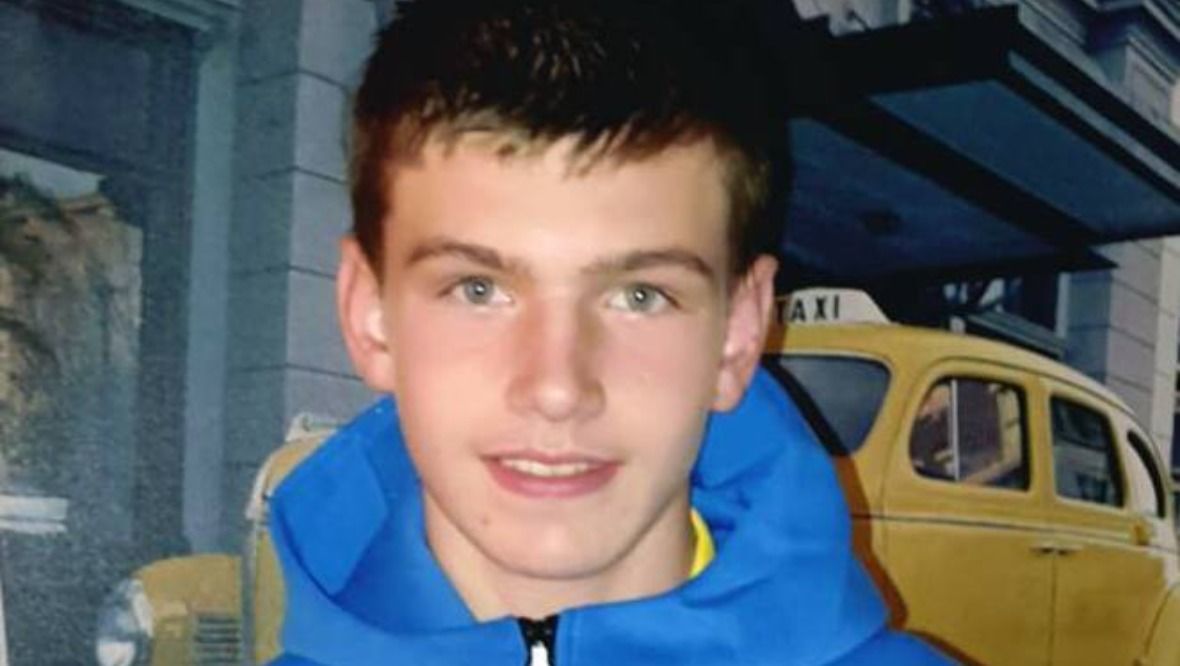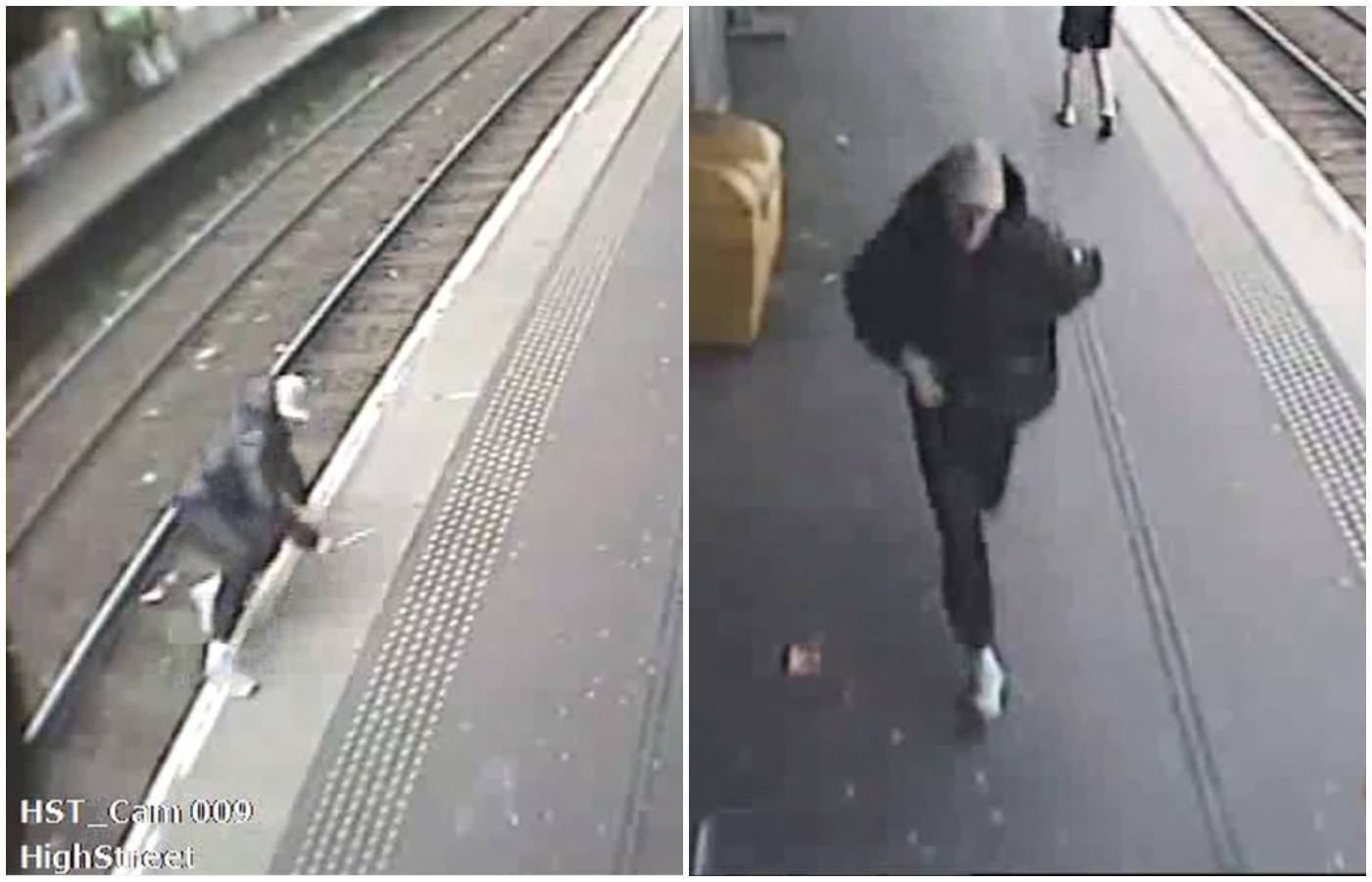A teenager jailed for the “appalling” murder of a schoolboy has succeeded in having the minimum term he’ll have to serve for his life sentence reduced.
Daniel Haig, 18, stabbed Justin McLaughlin in the heart and left him to die on the platform of Glasgow’s High Street train station on October 16 2021.
He was given a life sentence for the crime by judge Lord Clark at the HIgh Court in Edinburgh in August 2023. He was told he would have to serve a minimum term – known as a punishment part – of 16 years before he’d be eligible for parole.
This prompted lawyers for Haig to go to the Court of Criminal Appeal in Edinburgh to argue that the sentence given to Haig was “excessive”.
Defence advocate Michael Meehan KC told appeal judges Lady Dorrian, Lord Matthews and Lord Pentland that their colleague Lord Clark had made mistakes in how he decided to sentence Haig.
Mr Meehan argued that Lord Clark had failed to take account Haig’s young age at the time he passed sentence.
The lawyer argued that Lord Clark should have taken the sentencing guidelines on young people into account when sentencing Haig.
In a written judgement published on Thursday, the appeal court upheld the submissions made to the court by Mr Meehan.
Lady Dorrian – who delivered the judgement – wrote that she and her colleagues had evidence before them about Haig’s background that Lord Clark didn’t have.
 Police Scotland
Police ScotlandShe said that this information showed that Haig had good prospects of being rehabilitated.
Lady Dorrian said that Haig should be given a 13 year long punishment part.
Lady Dorrian wrote: “Having regard to all the known factors, and nevertheless fully acknowledging the dreadful nature of the offending, we are satisfied that the punishment part was excessive.”
During earlier proceedings, evidence showed Haig brandishing the knife which he used to stab Justin.
Haig was also seen in other CCTV images arriving at Glasgow’s High Street station before the fatal attack and then fleeing the scene.
Just before leaving the station, Haig had run at a group of youths, including Justin, and a clash broke out on the platform. After the scuffle ended, Haig jumped on to the track to retrieve the bladed weapon which he had dropped.
 Crown Office
Crown OfficeThe killer inflicted the single fatal blow after Justin tripped and fell during a chase at the station in October 2021.
Justin, who had just celebrated his birthday two days earlier, pleaded for his mother as friends tried to come to his aid following the stabbing. He was taken to hospital but never recovered.
Haig, who was 16 at the time of the attack, admitted knifing Justin but had denied murder.
He was found guilty following a trial at the High Court in Glasgow. The judge said the murder had a “devastating effect” on the victim’s family.
Passing sentence, Lord Clark said: “They were all running some distance away from you, but Justin McLaughlin tripped and fell.
“You ran right up to him and as he was standing back up you stabbed him. The knife went right through his heart.”
The judge added it was “deeply disturbing” to see gang activity still happening in Scotland.
In the judgement published on Thursday, Lady Dorrian writes of how evidence provided to the court showed that Haig had become “normalised” to violence through his upbringing.
She wrote: “The information now available to the court shows exposure to extreme domestic violence from an early age, first as a witness, later as a victim, and thereafter as a perpetrator.
“The appellant’s mother is reported to have stabbed his father and, on a later date, to have threatened the appellant with a knife while he was holding his younger sibling.
“The older relative, association with whom seems to have triggered an escalation in the appellant’s behaviour, is alleged to be involved in criminal behaviour in the east end of Glasgow and to have links to serious and organised crime.
“His father and uncle are currently serving lengthy prison sentences for violence, and an older maternal cousin is serving a prison sentence for murder.
“It is clear that the appellant has grown up in a familial environment in which the use of violence, including the use of weapons, has been normalised.”
Lady Dorrian also wrote of how there were signs of “positive engagement” between Haig and staff at St Mary’s Kenmure Secure Unit – the institution where he was placed following the sentencing.
She wrote of how Haig had been “participating in structured activities” which he found “engaging”.
He also showed a “capacity to build relationships” with staff. Workers at St Mary’s also described Haig as being “educationally capable and bright” and “behavioural difficulties” shown by him appear to be related to immaturity.
Lady Dorrian wrote: “There are good indications throughout the material that the appellant is a young man with some potential.”
Lady Dorrian and her colleagues decided that Haig should receive a punishment part of 13 years.
However, she wrote that there was no guarantee that he’d be released from custody at the end of that term.
She wrote: “It will be recalled that this does not mean 13 years is the limit of the period to be served, it means that this is the time which must pass before the appellant may apply for parole.
“His eventual release will not come until the Parole Board for Scotland is satisfied that it is safe to release him.”
Follow STV News on WhatsApp
Scan the QR code on your mobile device for all the latest news from around the country


 Police Scotland
Police Scotland

























